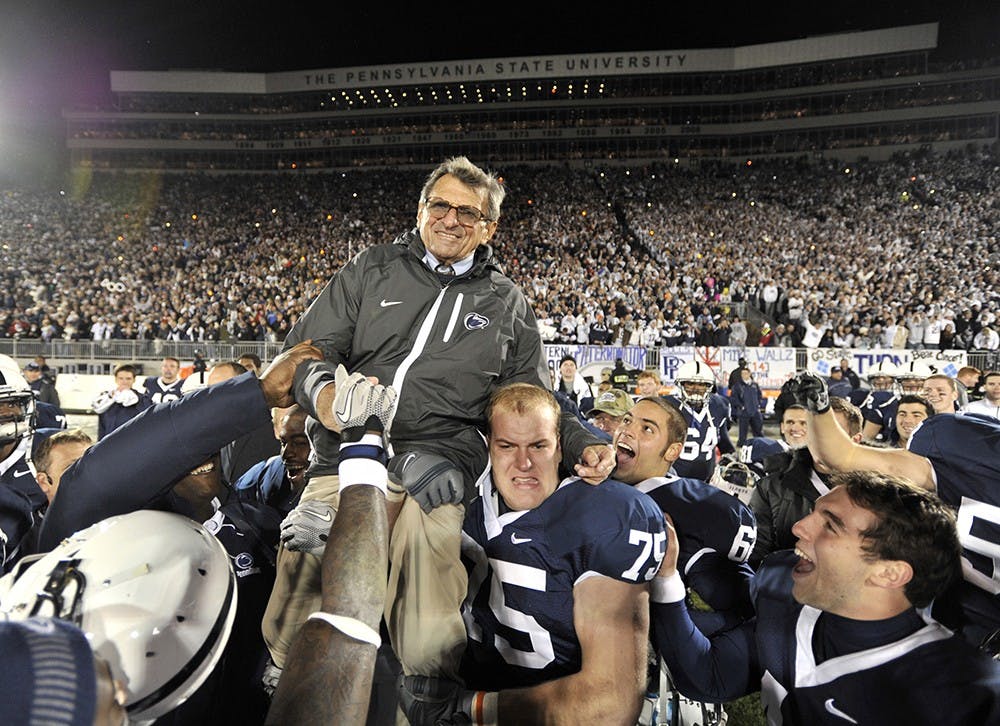He was the winningest coach in college football. Now, he is again.
Joe Paterno, the longest-tenured head coach in Football Bowl Subdivision history, spent 61 of his 85 years of life on the Penn State ?sideline.
During his 46 years as head coach, he racked up 409 wins, 37 bowl appearances, five undefeated seasons and two national ?championships.
He coached more than 250 players to the NFL, yet twice he turned down offers to coach at the professional level.
And in January 2012, just two months after his firing, he died in State College, Pa.
It is no exaggeration to say Paterno devoted his life to Penn State football.
But for all his commitment to the university, he failed.
Paterno failed to act on behalf of innocent young boys, helping to conceal a 13-year child sex abuse scandal at the hands of former Penn State defensive coordinator Jerry Sandusky.
I am not challenging that Paterno was a great coach or even a great man who made an egregious mistake.
But there is no accolade that can restore the lives of those affected by Sandusky’s crimes.
So why should Paterno’s 111 wins, his title and a large part of his legacy be ?restored?
The NCAA came down firmly once allegations against Sandusky, who was later convicted of 45 counts of sexual abuse, finally ?surfaced.
It was a difficult, unsettling time in which the world of sports and the real world collided — an outlet that inspires people with contests of grace and integrity, marred by the cruelties of daily life.
But the NCAA’s sanctions were a firm reminder that these acts would not be tolerated. Not in football, ?not ever.
Slowly but surely, that resolve has started to weaken. It began with the decision to end Penn State’s bowl ineligibility two seasons early.
It crossed the line with its decision to reinstate the school’s victories from 1998 to 2011.
Paterno, beloved in Happy Valley perhaps more than any coach by his college town, presents a bizarre case to some.
But his is no different than any coach or athlete who has been complicit in breaking the law — he is not above it, and he must be held accountable.
And while many, including the students of Penn State, are eager to celebrate Paterno’s reinstatement atop college football, we must be aware of the danger that painting over the past ?creates.
However much the NCAA, the university and the public want to move beyond this scandal, its painful memory exists to remind us of the consequences.
Problems that are ignored cannot be solved. And history cannot, under any circumstances, be allowed to repeat itself.
When sanctions were first levied against Penn State, NCAA President Mark Emmert said they were meant “to make sure the university establishes an athletic culture and daily mindset in which football will never again be placed ahead of education, nurturing and protecting young people.”
With the reversement of these sanctions, one has to wonder.
What message, then, is the NCAA sending college programs now?
vziege@indiana.edu





